“With affordability, or rather unaffordability, having moved off the scale in the past three to four years, the historically volatile Vancouver-area market is undoubtedly under substantial stress. Indeed it is vulnerable to a marked correction.
Although such a correction cannot be ruled out, we believe that the most likely scenario is one of a modest price decline, possibly in the order of 7% to 12% from quarterly peak to trough over the medium-term.”
– RBC Economics, Apr 2012 Report
We anticipate that the initial 10%-off will simply get the ball rolling, as sellers come to market in attempts to secure paper gains, and buyers back away. Thus, the “marked correction” outcome is far more likely.
Vancouver RE will most probably hit trough discounts of 50%-66%-off in the years ahead.
– vreaa



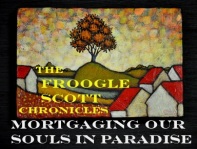




















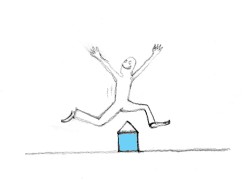

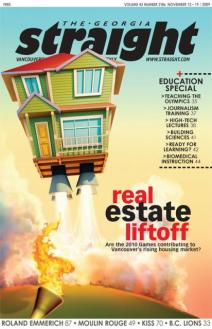




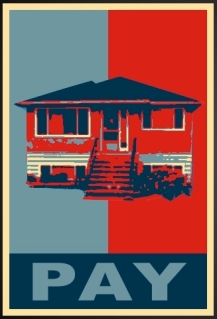
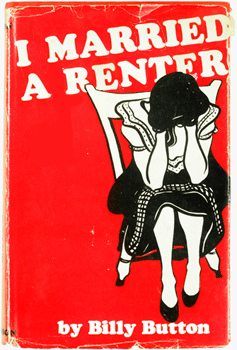
H8 4 housing. How un-Canadian.
Also of note and abstracted from RBC’s findings…
“Much of the Vancouver-area market’s high valuation hangs on the strong and constant flow of wealthy buyers coming from abroad – a phenomenon that is poorly documented,” he added in the report. “Unless we get better measurement of this phenomenon, the dynamics of the Vancouver-area market will remain rather opaque, putting any assessment at risk of missing critical market developments. For this reason, and the fact that the extremely poor affordability levels, quite frankly, make us uncomfortable, we urge caution. The Vancouver area market is more vulnerable to a significant downturn than other Canadian markets if an unfavourable economic scenario or unforeseen shock (e.g., a change in China’s policy regarding capital outflow) were to unfold.”
By way of illustration viz. “opaqueness”, the following Bloomberg graphic on the byzantine dis-aggregated transnational holdings of recently deposed CPC Boss Bo Xilai may well amuse [for Nem’s part, the juiciest revelation was Bo’s apparently limitless ‘stamina’ – “I think it’s an extremely conservative guess to say [Bo] had one hundred mistresses.” – Jian Weipeng, Chinese Journalist and former Prisoner of Conscience to NPR]…
[Bloomberg] – The Business Ties of Bo Xilai
http://tinyurl.com/bv5c9q8
you forgot this comment from Hogue
“Although Vancouver house prices have had much larger swings — both up and down — in the past, RBC’s Hogue said he’s not calling for a wholesale collapse such as that seen in the United States in 2008”.
Somerville said it best:
“I have no idea and given what we don’t know, you can’t really model the market,” Somerville said. “It’s very hard to figure out what’s going on in Vancouver because there are all kinds of don’t knows. We don’t know how many of those buyers are foreign buyers, you don’t know how many are strict investment, you don’t know how many are permanent residents, and you don’t know how many are occupying their units.”
Also what we don’t know…when a detached home is sold in Vancouver how much wealth goes in the to sale compared to financing. Anyone with this data I’d appreciate the link to where it can be found. Thanks in advance.
http://www.ltsa.ca/cms/how-to-access-records
Might “a change in China’s policy regarding capital outflow” mean the second biggest ponzi scheme in world history crashes?
rp1, I think you’ll enjoy this…
[Bloomberg] – China Seeks Boost From Low-Income Housing as Real Estate Slows
“The combination of artificially low interest rates, a lackluster stock market, and restrictions on investing abroad drove huge sums into the real estate market. Fixed asset investment, much of it in real estate, has grown more than 40 percent annually for the past eight years, said Nicholas Lardy, senior fellow at the Peterson Institute for International Economics in Washington.
In 2011 real estate made up 9 percent of gross domestic product, estimates Lardy, far higher than the 6 percent reached in the U.S. at its peak. “The whole growth trajectory of China has been driven by housing investment,” Lardy said. “If you wanted to create a bubble, you would have done exactly what China did.”…
http://tinyurl.com/dx868zh
I don’t know that much about “macro”, just what I read, but China’s goose looks to be already cooked. There is too much investment in stuff that doesn’t generate much economic output.
The politburo is full of technocrats; they are likely smart enough to see the problem. The solution, alas, is not so easy to see, but will likely involve a weaker currency and repatriation of capital when debts need to get covered.
Of course, RBC *says* 7-12%. It *thinks* something much bigger.
And I wonder – what is its definition of “medium term”?
Medium term is what already happened.
“medium term”
blame vreaa for not posting the entire comment
“House prices in the Vancouver area could see a modest decline of seven to 12 per cent over the next two to five years, an RBC Economics report says”.
If one reads the report itself (rather than reports reporting the report), it’s not precisely clear what timeframe they’re talking about. For instance, the report itself includes this passage:
“Our modeling suggests that B.C. prices could fall by nearly 5% on an annual basis over the medium term. Given that the Vancouver area represents more than 40% of the provincial market and assuming that prices elsewhere in the province will be mostly stable, the implied drop in Vancouver is slightly more than 7% on an annual basis or up to 12% on a quarterly basis depending on the assumed quarterly pattern.”
Anybody care to interpret this?
“7% on an annual basis” is definitely NOT the same thing as “a modest decline of seven to 12 per cent over the next two to five years”.
I like this line. ” the strong gains in property values from 2009 to early 2011 were overstated by MLS average price.”
As I stated in an earlier post, the average price is only as strong as the sales volume backing it up. The smaller the sample size, the less reliable the numbers are.
What strikes me as interesting in your quote, Nem, is that I really saw the “Chinese in-migration” explanation as a general, not terribly well informed meme on the street. Population expansion at this rate is not a new phenomenon, yet in the aggregate housing tracks inflation and there’s a reason for that. Not having your entire economy with money frozen in capital is pretty darn important. (Rents are nice, but you also have to make stuff.)
An even more common phenomenon is seeing migrants as the source of a society’s problems. I think our investment and immigration programs have some problems, especially in encouraging scapegoating, but it’s just gas on an already glowing fire.
However, here’s an actual player entertaining that China is a first-cause of the past decade’s irrational exuberance in Vancouver housing? That strikes me as interesting, when not coming out of the face of a realtor or Dude On The Street.
( And of course, China’s been running the economy hot and making y-o-y gains that are smoke and vapor. Even if Chinese investment is more than just a small secondary player, clearly that party will also end. )
Interesting times we live in.
We just need to look at debt levels in BC to see how hollow the “wealthy immigrant” meme is, never mind that the vast majority of immigrants are not wealthy by local standards.
There are >5k “wealthy immigrants” to Metro Vancouver annually. It is hard to dispute that there are certain market segments in which these immigrants have a big impact. Then it seems that there are trickle-down effects, enabled by debt, to the remainder of the market.
The “trickle-down effects” are entirely voluntary. If locals decided not to compete with the “hot money” prices would barely move, unless there is some credence to this “hot money” buying up everything and anything below current prices.
To me, the key phrase is “enabled by debt”.
If we are placing our bets for posterity. I’ll go with 44% correction in raw price, not adjusted for inflation.
Is this for market overall or detached market?
How much are you willing to wager? What timeframe?
Added: you sound like a gambling man. Color me surprised.
Timeframe is 8 years. That’s on SFH.
These are bets for pride, too hard to pay out in the anonymous world.
so much for putting your money where your mouth is
oops… BlogWerks CommentzDeStuken, Ed.
AllesWerkenPunktful, HerrNem.
I just can’t see what dynamic could stop the losses at 5% to 10%. I guess strong economic up-cycle happening at just the right time could put a break on the losses.
But then again, Vancouver had this happen in 2008, so it can happen again I guess.
Canada rebounded because China printed more money than god. They bought everything this country produces and fed their own bubble which is among the largest in all of history. Now China has popped, Europe is crashing, and the United States is wobbling. I suppose anything is possible, but it’s betting on another fluke.
It seems universal that banks and finance ministries always attempt to play down the scale of and impact from bursting bubbles.
10%, 30%, 40%, 60% correction, whichever it would unfold, it will be catastrophic for the majority of “0-20%-down” homebuyers and, later, the taxpayers.